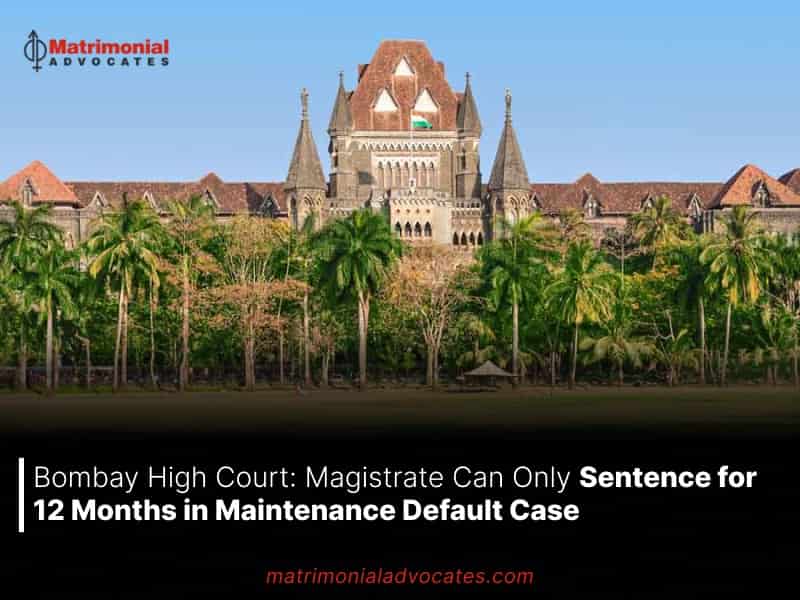
In a recent ruling, the Bombay High Court has ordered the release of a person who was serving a 47-month prison sentence for not paying maintenance to his wife and daughter in a domestic violence case. Justice Sharmila U Deshmukh highlighted a key point: according to section 125(3) of the Criminal Procedure Code (CrPC), magistrates can only sentence defaulters to a maximum of 12 months in jail. This decision stresses the importance of following legal guidelines, especially regarding maintenance payments.
“by limiting the application for issuance of warrant to a period of 12 months, the power of the Magistrate stands restricted to impose maximum punishment of imprisonment for period 12 months. If an application cannot be filed seeking warrant for recovery of amount remaining unpaid for period of more than one year, there is no question of imprisonment being imposed for a term exceeding one year. The period of 12 months is the outer limit”, the court observed.
In a recent judicial pronouncement, the court has decreed the release of an incarcerated individual who had been serving a 47-month custodial sentence for defaulting on maintenance payments to his wife and daughter within the purview of a domestic violence litigation. This adjudication, rendered by Justice Sharmila U Deshmukh of the Bombay High Court, emerged from a legal challenge mounted against a ruling by the Metropolitan Magistrate. The latter had adjudicated the individual in question for his failure to fulfill maintenance obligations as mandated by the provisions delineated in the Protection of Women from Domestic Violence Act, 2005.
The genesis of the legal contention lay in the petitioner’s assertion that the sentencing authority vested in the Magistrate is circumscribed by a statutory limit of a maximum 12-month custodial term for each month of default, as stipulated under Section 125(3) of the Criminal Procedure Code.
The judicial dictum elucidated that while the Domestic Violence Act primarily proffers civil redress, including pecuniary remedies such as maintenance, the implementation of maintenance directives is contingent upon the regulatory framework entrenched within the Criminal Procedure Code. It expounded that the Magistrate’s prerogative to decree imprisonment for default is constrained by a temporal threshold of 12 months, as enshrined in the proviso appended to Section 125(3) of the CrPC.
The adjudication underscored the principle that only 12 months’ worth of defaults may be amalgamated within a singular application, with subsequent defaults necessitating discrete applications for enforcement. Despite the petitioner’s intermittent remittances, the court noted the Magistrate’s disregard for this statutory limitation when meting out the 47-month imprisonment sentence.
In consequence, the court annulled the antecedent order and directed the petitioner’s immediate release. Nonetheless, it articulated that the respondent wife retains the prerogative to initiate fresh applications for the enforcement of maintenance orders, subject to the statutory consolidation limit of 12 defaults per application. The Magistrate was enjoined to adjudicate such applications in accordance with the statutory mandate.





